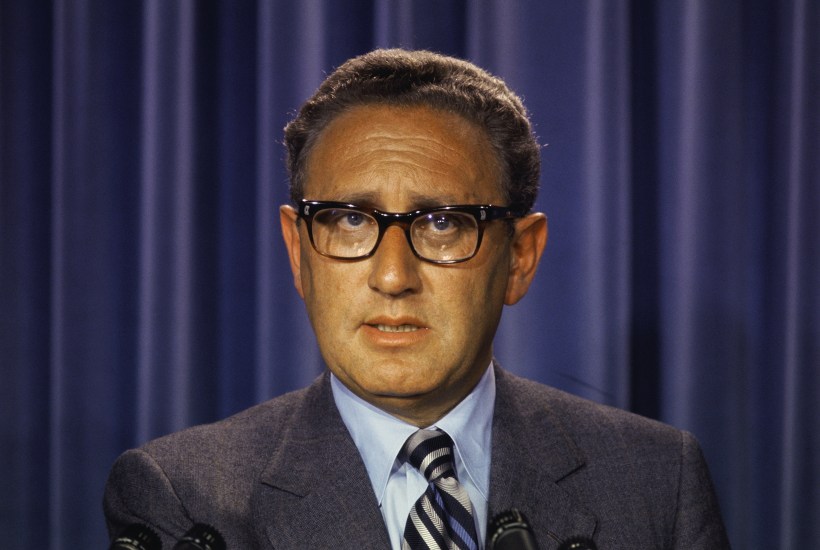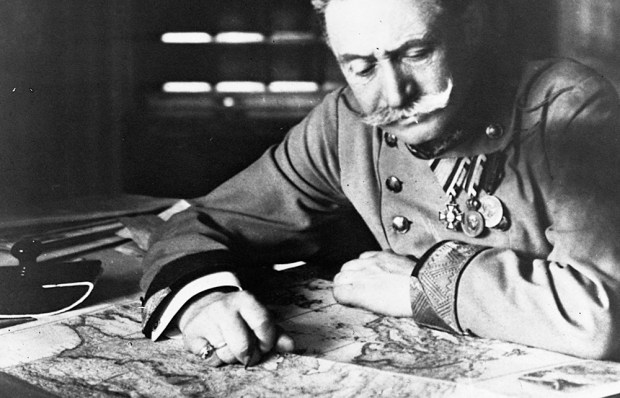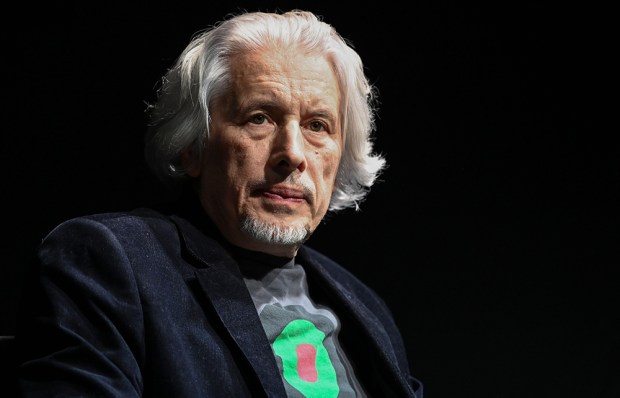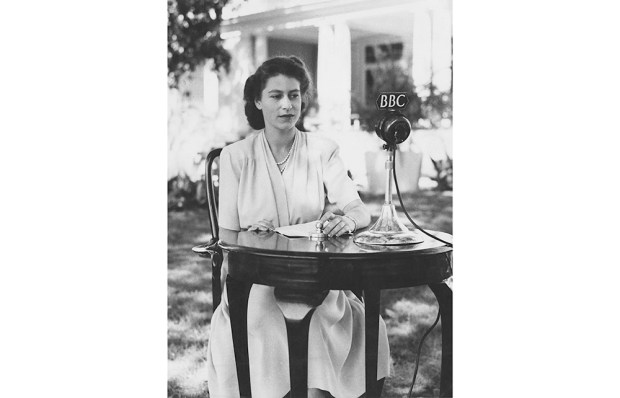It was not until I went to Harvard in 1988 to take a year out from the Foreign Office that I came to realise how riven by ideology the world of US foreign policy had become. For 20 years I had been moulded by the resolute pragmatism of British diplomacy. My American sabbatical threw open the door to intellectual conflict in the study and practice of international relations unlike anything I had experienced. Two great warring clans — the realists and the idealists, those who took the world as they found it and those who saw the world as they would like it to be — were at each other’s throats. At the head of the realists towered Henry Kissinger, as he does to this day, aged 96.
Kissinger remains a figure of profound and sometimes bitter divisiveness. That in itself is astonishing. It is 43 years since he held office. He was in government for only eight, from 1969 to 1977 under Presidents Nixon and Ford, first as national security adviser, then as secretary of state, with a spell in between when he held both offices. As Barry Gewen reminds us in his fine biography, Kissinger’s popularity in America in the early 1970s attained ‘incredible heights’. This was based on solid, even brilliant, achievements: the opening to China, détente with the Soviet Union and the peace deal with North Vietnam to name but three. The Foreign Office, in which I worked at the time under the Labour governments of Harold Wilson and Jim Callaghan, nicknamed him the ‘Wizard of the Western World’.
But that was not all of it. Somehow or other Kissinger’s portly figure became a sex symbol, a celeb. His sky-high popularity reached parts never penetrated before or since by an American government official. In 1972 Playboy Bunnies voted him the man they would most like to date. A few years later Miss Universe contestants voted him ‘the greatest person in the world today’. It may have had something to do with his saying, as reported by the New York Times in 1971, that ‘power is the great aphrodisiac’. Or it may have been his propensity to date Hollywood starlets very publicly.
His fall from grace was as precipitous. Though not directly involved, he was fatally damaged by association with the Watergate scandal and Nixon’s resignation in 1974. The intellectual and political tides turned against him, especially in Congress. ‘It was as if,’ says Gewen, ‘Richard Nixon’s downfall had breached the political levees, not just on matters pertaining to Watergate but on the entire thrust and direction of American foreign policy.’
Almost a half-century later that turning of the tides still leaves its mark. Some today revile Kissinger as duplicitous and untrustworthy, even a war criminal. Some still bear the scorch marks from the white heat of his ambition and arrogance. Others place him among the very greatest diplomatic practitioners, up there with Castlereagh and Metternich, 19th-century heroes of realism and of Kissinger’s doctoral dissertation on the Congress of Vienna. Still others have been bewitched by his considerable charm and wit.
Gewen seeks to escape this cartoon depiction of Kissinger, absurd in its Manichaean extremes. He does so successfully with sympathy for his subject, subtlety, good writing and not a little humour. His book examines three sets of complexities better to understand the man, the thinker and the diplomat — complexities all of which are intertwined. This is not a book for those who like their characters cut and dried, black and white. It is a portrait painted in multiple shades of grey.
Kissinger arrived in the US in 1938, a German-Jewish refugee from Nazi Germany. He was old enough to understand that it was democracy — voters freely voting — that had delivered Germany into the hands of Hitler. It is hardly surprising that he never came to share his adopted compatriots’ belief, instilled with their mothers’ milk, that American democratic values were of universal application, the very essence of American exceptionalism. In the end, that was the unbridgeable gulf between him and his enemies, the root of the accusation that his foreign policy was just amoral real-politik and, thus, intrinsically un-American.
Kissinger considered his pessimistic, Hobbesian view of the world, ever aware that tragedy lurked around the corner, anything but amoral. What mattered to him in foreign policy was the balance of power between sovereign nations, ‘the very law of life’, as his friend and mentor Hans Morgenthau had said. Though far from perfect and requiring constant attention and adjustment by diplomats, it was an organising principle of foreign relations that, unlike the idealists’ moral absolutism, gave peace a chance.
Stable relations based on an unsentimental understanding of the limits of your own power and of the vital interests of other powers were a supremely moral goal, even if the choice was between bad and worse, even if it meant compromising with nasty regimes which treated their people badly. Compare and contrast the Congress of Vienna — at which, through a careful calibration of the balance of power, Castlereagh and Metternich gave Europe 99 years without a general war — and the Treaty of Versailles of 1919 — which, thanks to President Wilson’s moralism, collapsed a mere 20 years later in another world war and tragedy for Europe’s Jews.
Gewen uses Chile and Vietnam to consider Kissinger’s application of his principles. He gives us more than we may wish about Chilean history and the background to the military coup in 1973 which overthrew the democratically elected Marxist president Salvador Allende. But, whether or not Nixon and Kissinger were directly implicated in the coup, as opposed to being happy to see the back of Allende, the larger point for Gewen is that, because of Hitler’s ‘demonic’ ghost, Kissinger had no reverence for leaders simply because they had been democratically elected.
As for Vietnam, examined at length in all its error and tragedy, it provided Kissinger with the high point of his career in the Nobel Peace Prize, as well as its nadir, as the last Americans were rescued by helicopter from the roof of their Saigon embassy in the great humiliation of 1975. Despite all his ingenuity and brilliance, Kissinger was never able to rescue the American intervention in Vietnam from the disastrous, crusading, moralising mind-set of a Washington that took communist ideology more seriously than the communists themselves.
Gewen tells us that Kissinger is more than a figure out of history, and that we dismiss or ignore him at our peril:
His arguments for his brand of realism — thinking in terms of national interest and a balance of power — offer the possibility of rationality, coherence and a necessary long-term perspective at a time when all three of these qualities seem to be in short supply.
Got something to add? Join the discussion and comment below.
Get 10 issues for just $10
Subscribe to The Spectator Australia today for the next 10 magazine issues, plus full online access, for just $10.
You can say that again. Where are the 21st-century’s Henry Kissingers when we need them?
You might disagree with half of it, but you’ll enjoy reading all of it. Try your first month for free, then just $2 a week for the remainder of your first year.














Comments
Don't miss out
Join the conversation with other Spectator Australia readers. Subscribe to leave a comment.
SUBSCRIBEAlready a subscriber? Log in